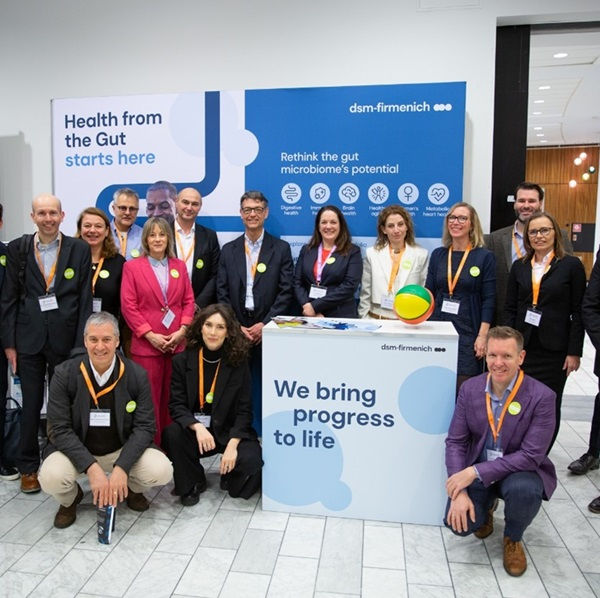News
December 2, 2024
The meaning of longevity: What global consumers really think about health expectancy
What does longevity really mean to people? Discover our top insights into the latest global consumer priorities and concerns around longevity and health expectancy.

Summary
- To better understand what longevity and health expectancy means to consumers, we surveyed over 1,000 people around the world to shed light on the latest global priorities and concerns.
- Over half of consumers worldwide associate health expectancy with factors like diet and nutrition, and health and wellness, while many also believe in taking proactive measures to live better for longer.1
- With consumers globally expressing aging-related concerns across diverse health areas, supplements remain a popular option for them to get the nutrients needed to support better health expectancy.
The concept of longevity is far more nuanced and subjective than the idea of a long-life expectancy alone. Beyond quantifying the number of years lived, individuals can hold very different views on what longevity means. As part of our pursuit of industry-leading nutritional innovations that elevate health expectancy, we decided to dig deeper into consumer perceptions of longevity. In fact, we polled over 1,000 consumers spanning Baby Boomers to Generation Z across nine countries—the US, Mexico, Brazil, UK, Germany, Italy, China, South Korea, and Japan—to learn what people really think. Read on for our top three insights into the latest global consumer priorities and concerns around aging, life expectancy, and health expectancy.
What are consumers’ biggest worries about aging?
It’s a sobering fact that we’re losing almost a decade to ill health, with a ten-year gap between life expectancy and health expectancy—years lived in good health feeling well and mostly free of disease.2 Echoing this sentiment, consumers around the world shared their top five health areas of concern related to compromised health expectancy:
- Bones and joint health (51%)
- Mental and emotional health (48%)
- Heart health (46%)
- Immunity (44%)
- Energy levels or tiredness (40%)
Notably, these aging-related concerns span diverse health and wellness areas. Coupled with the complexity of the science behind the aging process, it’s no surprise that consumers have different views on what’s most important in supporting better health expectancy.
Uncovering the factors behind health expectancy
We discovered that over half of consumers worldwide associate health expectancy with diet and nutrition (52%), and health and wellness (52%). When it comes to diet and nutrition, consumers believe a balanced, nutrient-rich diet, healthy eating habits, avoiding harmful foods, and incorporating the right nutrients are crucial for extending healthy living. Maintaining good physical and mental health is also seen as fundamental to living a long and healthy life, while many also agree on the importance of proactively managing their health.
Ultimately, health expectancy is just as much about quality of life as it is about life expectancy. For 33% of consumers globally, health expectancy is not just about living longer, but about enjoying life and finding meaning in their later years. To bridge the ten-year gap between life expectancy and health expectancy, they focus on a life that’s grounded in a wholesome balance between health and happiness.
One in three consumers (33%) also view regular physical activity and exercise as key contributors to health expectancy. That’s because staying active helps them feel better and live longer by keeping their bodies in shape. This focus on living both longer and better comes as no surprise, given the mental and physical challenges associated with the aging process. Moreover, 14% of global consumers expressed concerns about the impact of aging on cellular health—the key to health expectancy.
Supporting health expectancy with supplements
This is where health endurance supplements and preventative care come in. Nutrients and compounds, like coenzyme Q10, resveratrol, and other phytochemicals, can support cellular health to increase quality of life and function in advancing years for greater health expectancy. 21% of global consumers believe that taking supplements is an important part of preventing illness and maintaining long-term health. To ensure their bodies get the nutrients needed to support longer health expectancy, the leading supplements taken by consumers worldwide today include vitamin C (53%), multivitamins (52%), vitamin D (50%), and omega-3s (45%). And while supplements are popular across the globe, they’re especially prevalent in China, South Korea, and the UK.
We found that Chinese consumers focus on diet and preventive, proactive measures like taking supplements and maintaining health expectancy through nutrition. With their cultural emphasis on taking proactive measures to maintain wellness and health, South Koreans similarly value supplements and preventive care, alongside maintaining a healthy diet. In the UK, health expectancy is also strongly linked to taking preventive measures, such as using supplements and vitamins. Many British people consider it essential to maintain a healthy balance between physical activity and rest too. Ultimately, in all three countries, there is a generally positive sentiment toward the role of supplements, diet, and preventive care in promoting health expectancy.
Innovating to make happier, healthier golden years a reality
Addressing the gap between health expectancy and life expectancy is vital to support healthier, happier living in our later years, and dietary supplement brands have a key part to play.3 At dsm-firmenich, we’re passionate about elevating cellular health to support greater health expectancy through robust scientific innovation and high-quality ingredients powered by customized solutions and expert services. Together, by capitalizing on the exciting possibilities of nutritional innovation, we can empower consumers to fuel long-term health expectancy and wellness via cellular health support.
Let’s connect
Want to join us in creating cutting-edge health endurance solutions that help people around the world live vibrant and fulfilling lives for longer? Get in touch to find out more about our innovative approach to support greater health expectancy from the cellular level.
References
1 dsm-firmenich, ‘Meaning of Longevity 2024’ agile survey, 1074 participants from 9 countries.
2 Garmany, A., Yamada, S., Terzic, A., Longevity leap: mind the healthspan gap. npj Regenerative Medicine volume 6, Article number: 57 (2021).
3 Ahlawat, H.; Darcovich, A.; Dewhurst, M.; Feehan, E.; Hediger, V.; Maud, M., Age is just a number: How Older Adults View Healthy Aging. McKinsey Health Institute (2023).
Related Content
Recommended Reading
-

2 April 2025
The gut microbiome as a pathway to supporting children with autism: New study reveals synbiotics' dual benefits for digestive and behavioral symptoms
-

31 March 2025
Turn the tide against global malnutrition: The importance of cross-sector collaboration
-

11 March 2025
What's next for gut health? 5 breakthrough trends from Probiota 2025
Quick links
Customized blends of functional ingredients in one single, efficient premix.
Streamline your product development process and get to market faster.
From trade shows to conferences and other industry events, find out where you can meet us next.
Talking Nutrition, Health & Care
Explore new science, consumer insights, industry news and more in our latest articles.
Discover educational whitepapers, webinars, publications and technical information.
Request samples, place orders and view product documentation.